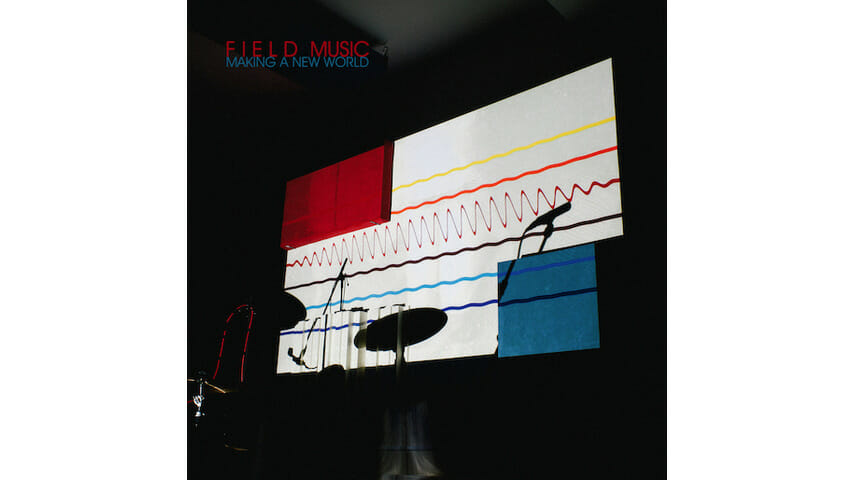Field Music’s Stiff Prog-Pop Hampers Their Complex Concept Album
The Brewis brothers explore the impact and effects of World War I on Making A New World with mixed results
Music Reviews Field Music
David and Peter Brewis, the brothers who make up prog-pop project Field Music, have spent the last few years reckoning with the history of World War I. In 2016, they helped compose the score for Asunder, an Esther Johnson film that centered on the director’s hometown of Hull, a seaside town frequently bombed by German zeppelins during that conflict. Two years later, the brothers were commissioned by the Imperial War Museum to create a suite of songs to commemorate the 100th anniversary of the end of the Great War.
The latter project, initially performed live at the Museum’s two outposts in London and Salford, has been captured for posterity on Field Music’s latest album Making A New World. The timing feels a little off with the centenary now just over a year in the past, but this bold, yet rigid work has a much bigger scope than Asunder. The war is merely the starting point for the Brewises, as they follow the waves of history and strife from the epicenter of WWI to unexpected places.
Some threads are easy to follow. “Coffee or Wine” is a lumpish waltz told from the perspective of a British soldier returning home from the front and dealing with a flood of mixed emotions. And “Money is a Memory” concerns the final $94 million payment made by the Germans to settle their debts from the Great War. “A procedural formality… bonds raised to rebuild democracy,” David Brewis sings over a Hot Chocolate-like R&B groove.
Outside of that, their purview gets wider and weirder. “Only In A Man’s World,” for example, is a synth-drenched ode to menstruation and the development of sanitary pads. Too, “A Change of Heir” pays homage to the doctor who performed the first gender reassignment surgeries. They feel like odd diversions, but with a little digging, the connections to armed conflict reveal themselves. Sanitary pads were apparently first made to help staunch the flow of blood on the battlefield, and the doctor in question evolved his techniques from providing skin grafts for injured soldiers. The songs themselves work just fine without those details but the added context gives a more complete picture of the Brewises intentions.
Other tracks on New World belie the album’s title, proving how the peace that was achieved in November 1918 was short-lived and has remained elusive in the 100 years since. It’s a novelistic approach to the pop album, respecting the intelligence and curiosity of Field Music fans and those lucky people that got to see this music performed live in 2018.
That sort of studious approach to the creation of this music, and much of Field Music’s discography, does lend a stiffness to the whole album. The rhythms are metronomic throughout as the rest of the instrumentation falls into lockstep with those beats, all while the guitar riffs and synth patterns jut out at hard angles. That craggy landscape gets broken up by lusher interludes and tempered by the vocals (“Do You Read Me” is served especially well by David Brewis straining to hit a note at one key spot in the verses and the glorious harmonies in the chorus), but the impression—bolstered by the album art—is that the band had timed the music to coincide with a video display of some kind. That’s befitting a live show, but translating that to the studio can prove hard to remove the muscle memory and allow a little humanity into the performances.
And that’s the larger issue with New World. As the news keeps reminding us, the lessons of the first global conflict are still being learned and unlearned a century later. The Brewises do seem to understand that, but they also keep these messages at arm’s length. And by working in those deeper connections to seemingly off-topic subjects like sanitary pads and the 1989 Tiananmen Square protests (the subject of “Nikon Pt. 1”), that remove becomes greater. Keeping the raw emotion of a war that killed an estimated 40 million people out of the equation likely helped Field Music get their job done, but a touch more sentiment would have gone a long way toward taking this album beyond its research project roots.
Revisit Field Music’s Daytrotter session from 2012: